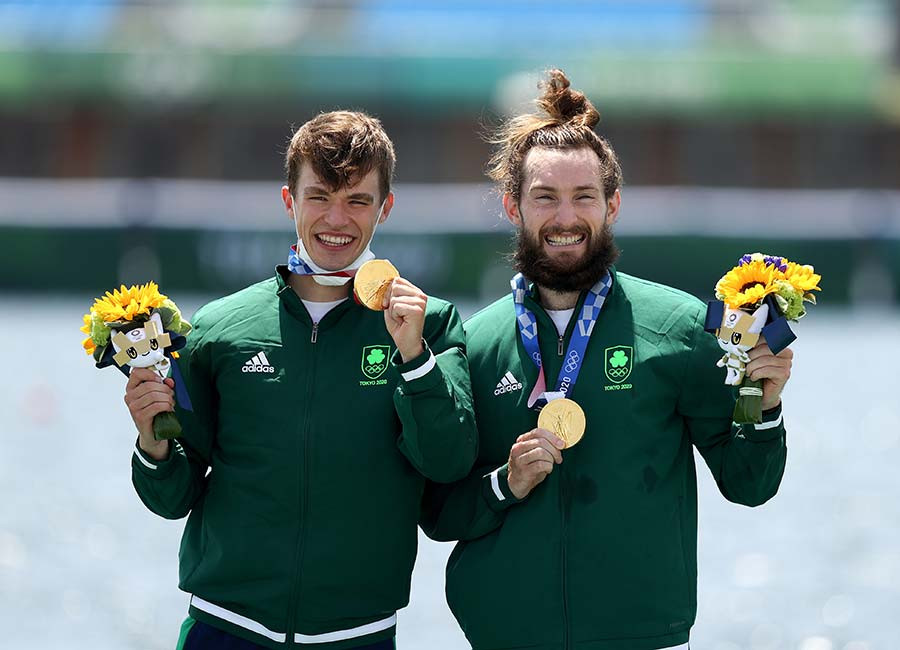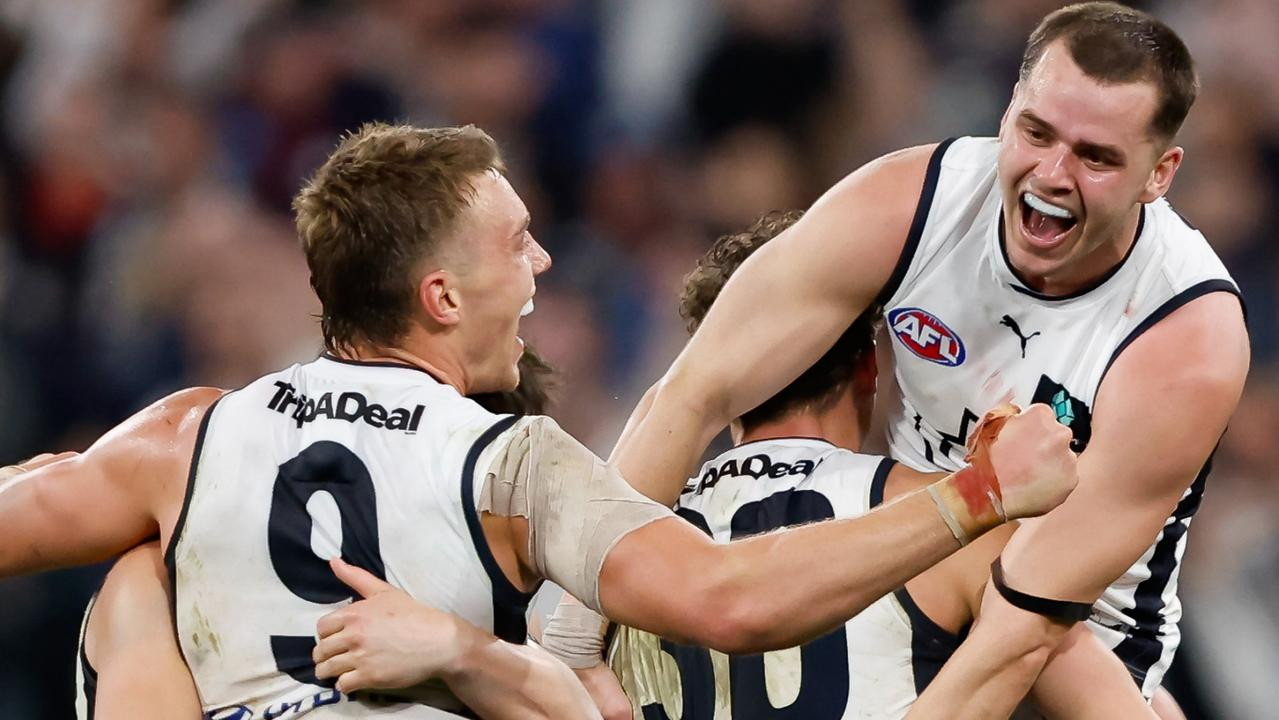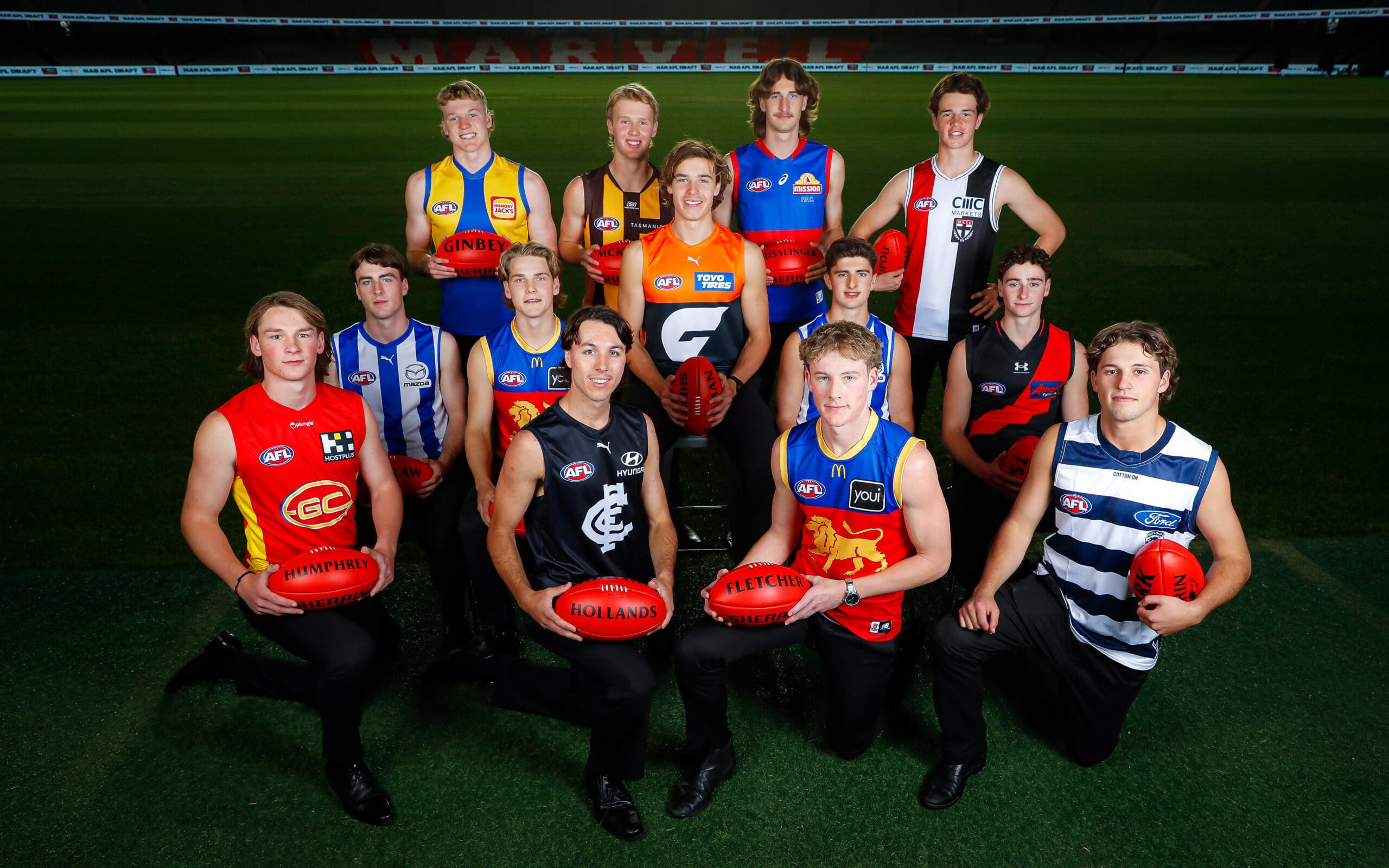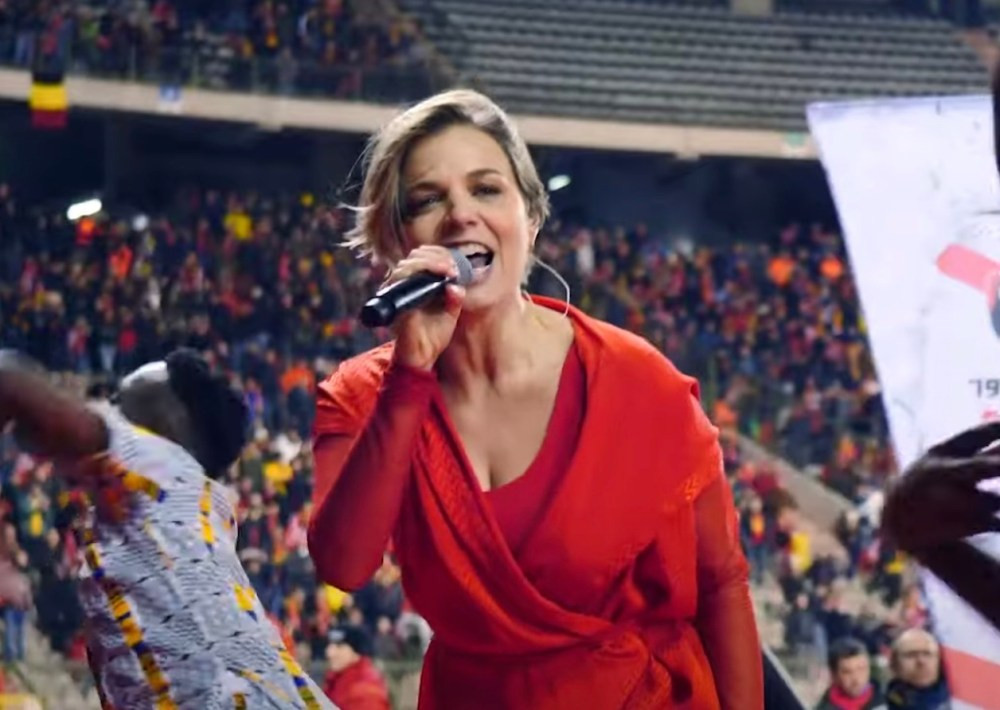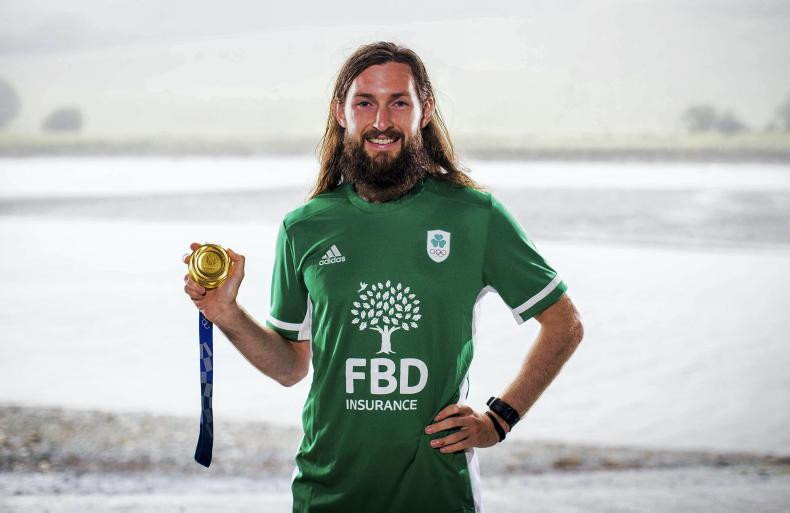Perfectly measured, composed and showing an ability to move through the gears (and maybe elements of pulling like a dog) saw the Skibbereen pair of O’Donovan and Fintan McCarthy lord it over Olympic rowing in the lightweight double sculls to win their second successive gold medal and O’Donovan’s third overall.
O’Donovan and McCarthy were masterful in the hot, sunny conditions on the 2,000m course on the outskirts of Paris. Despite their default position of humility and occasional self-deprecation, the boat moved through the water with the elegance of a dog at Crufts that knows it is being shown.
Incremental adjustments in strokes and boat speed, an awareness of where they were in the race and what they could give and the cranking up to a murderous pace on the third leg of the race broke it wide open.
“I think we were feeling good, so we knew if there’s any challenges, we’d be able to try and cover it,” said McCarthy. “When it gets to the last 300m or 200m, I just like to let Paul know I’m feeling good so he can go if he wants, and I’ll be able to back him up. So I tried to get that across but it’s very hard to hear with the crowd, so we were both going ourselves and then thankfully we got across the line first.”
For the first half of the race the Irish boat was content to sit in with the rest of the field and for the first 500m were tucked into third place. The unbreakable style of the two is a race that starts with containment and gradually squeezes every boat in the field with unrivalled tempo and endurance.
Italy and Greece had made the early running with the Irish boat comfortably shadowing every move. Then Ireland put on a surge between 500m and 1,000m and crept up through the field, shedding all in the other boats but that of the Italians, who were 0.9 seconds ahead.
But O’Donovan and McCarthy were just beginning and by the time the field had approached the three-quarter mark at 1,500m, they had moved into first place and led coming into the final 500m.
For all their international races, their consecutive Olympic gold medals, three world championships and two European Championships, a conserving start and slow wind up is how they have won.
“When you are a bit more conservative off the start like we are and then you’re not too far off the pace at 500m and at the halfway and you feel you’ve a bit more to give, then you know for sure that you can enjoy it for a little moment as you start to wind it up,” said O’Donovan.
Once more Irish support seemed to materialise and form a wall of noise around the stands lining the course.
“Our tents are on top of the boathouse over there so before going out you can catch a glimpse of the grandstand. And I was like ‘Jesus, there’s a whole load of green people over there’,” said O’Donovan.
“And then I was like, there’s some supporters for the white team as well, and a few Dutch people around. But then when we were standing on the podium I was like ‘oh yeah, that’s the green, white and orange of Ireland, isn’t it?’ There were so many of them over. So yeah, really appreciate all the support, people that travelled over, friends, family.”
The Irish time of 6:10.99 was almost two seconds faster than second-placed Italy and third-placed Greece and around five seconds slower than the run in Tokyo. No matter, with varying conditions of wind, temperature and water conditions times are no consistent indicator of performance.
What next for the decorated athletes? For the moment they are going their separate ways, with 30-year-old O’Donovan travelling to Canada in two weeks for the World Championships and McCarthy taking some time out.
“Yes, I’m going,” said O’Donovan about the World Championships.
“I’ll have a little bit of a break, take stock and see what’s next,” said the younger 27-year-old McCarthy.
Their future is a bigger question now than it was when they left Tokyo three years ago as the lightweight class is being decommissioned for the next Olympic Games by the International Olympic Committee. For McCarthy or O’Donovan to compete in four years at Los Angeles 2028, they must move to a heavier weight class.
“We had our last ever weigh-in this morning,” said McCarthy. “I’d say this is the skinniest I’ll ever be.”
The path to the open class, heavyweight, is perhaps already being drawn.
The Legacy of the Lightweight Double Sculls Champions
The gold medal win for O’Donovan and McCarthy marks a historic moment in Irish rowing. It is the first time that an Irish rowing crew has defended an Olympic title since 1932 when Pat O’Callaghan won the hammer throw event for the second consecutive time. O’Donovan, with this win, also becomes the first Irish athlete to win medals in three Olympic Games. This achievement is a testament to the dedication and commitment of both athletes and their coach, Dominic Casey.
The End of an Era
The Paris 2024 Olympics saw the last ever lightweight men’s double sculls event. The International Olympic Committee has decided to remove this class from the competition, paving the way for the introduction of coastal rowing in the 2028 Olympics in Los Angeles. This decision presents a new challenge for O’Donovan and McCarthy, who will need to move up to the heavyweight class if they wish to compete in the next Olympics.
The Future for the Champions
The future for O’Donovan and McCarthy remains uncertain. While they will be moving up to the heavyweight class, the transition will not be easy. They will need to adjust to the demands of rowing in a heavier weight class, but their experience and talent will be valuable assets as they embark on this new chapter in their rowing careers.
A Legacy of Humor and Underdog Spirit
Despite their incredible success, O’Donovan and McCarthy have remained grounded and down-to-earth. Their signature humor and self-deprecating nature have endeared them to fans worldwide. This endearing trait has also been instrumental in their success, allowing them to maintain a positive attitude even in the face of adversity.
Their underdog spirit, their remarkable talent, and their winning personality will undoubtedly continue to shine through in their future endeavors, whether they choose to remain in rowing or embark on new journeys.
The Irish rowing team has much to celebrate. Their achievements have not only brought pride to their nation but have also inspired a new generation of rowers to pursue their dreams.




